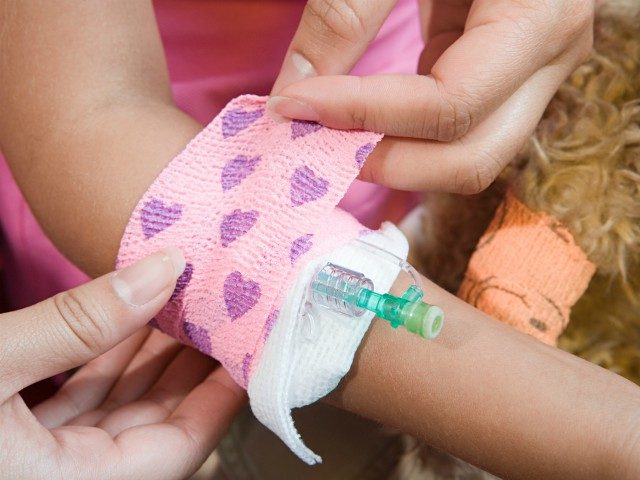The UK’s coronavirus lockdown has impacted every area of healthcare, including cancer treatment, paediatrics, and cardiovascular care, resulting in excess deaths and delays to treatment, according to analysis.
Office for National Statistics (ONS) figures had already revealed on Monday that there were 25,000 excess deaths at private homes since the beginning of the year — with only nine per cent being as a result of coronavirus. Another piece of analysis predicted excess deaths would rise directly as a result of the government’s “Protect the NHS” message which deterred people from making medical appointments.
But it was the audit of several dozens of reports by health professionals, charities, and medical journals by the Daily Mail that revealed in full the staggering effect that the lockdown has had on non-COVID-19 patients.
The report noted a Lancet paper stating that during the three months of lockdown, organ transplants fell by two-thirds, resulting in the numbers of people dying on transplant waiting lists to nearly double.
Hospital chemotherapy attendance fell by 66 per cent in April, per a University College London study for the British Medical Journal analysed by the newspaper. Urgent referrals for early cancer diagnosis dropped by up to 89 per cent, according to the same study. Delays to treatments are unlikely to be caught up to for years, the Daily Mail says, revealing that delays could cause a 20 per cent rise on deaths of new cancer patients in England alone.
Report: Cancer Patients Decry Deadly Delays and Cancellations Due to Focus on Covid https://t.co/zHMUbNya4G
— Breitbart London (@BreitbartLondon) October 18, 2020
The Royal College of Paediatrics and Child Health said that hospitals postponed some 50,000 surgeries for children from March to May in England alone.
Rates of depression and anxiety also doubled, according to analysis from the ONS. While the British Medical Journal of Psychiatry found that nearly one-in-five people had suicidal thoughts in the first month of lockdown.
University of Buckingham cancer specialist Professor Karol Sikora called the newspaper’s analysis a “stunning demonstration of lockdowns’ harmful effects across society”.
“If lockdown were a drug, you’d need to consider the side effects, and yet we’re not – even though we seem to be diving headlong into another one.
“People sometimes claim it’s a question of health versus the economy, but it’s not – it’s health versus health,” Prof Sikora told the Daily Mail.
London GP Dr Renee Hoenderkamp wrote for the Daily Mail that in “bitter irony”, the government’s “heavy-handed” approach to coronavirus “supposedly designed to save lives appears to have achieved the exact opposite”.
‘Protect the NHS’ Message that Scared Away Patients Could Contribute to Extra Deaths: Report https://t.co/I1ioy3QkhB
— Breitbart London (@BreitbartLondon) October 19, 2020
“When the coronavirus outbreak began, and the Government talked of lockdown, I felt that tens of thousands of people could ultimately die, not from the disease itself, but the misguided response to it. That is exactly what seems to be happening,” she said.
The doctor explained that in one instance because face-to-face GP appointments have been all but cancelled in favour of telephone or video calls, parents were directed to look on YouTube to teach themselves how to administer an adrenalin shot with an EpiPen to their severely allergic child because they could not get an in-person appointment with a specialist.
“Effectively, thanks to the Government’s edict, the system was all but closed to cases that did not involve Covid-19. In practice, the National Health Service had been temporarily replaced by a National Covid Service,” Dr Hoenderkamp wrote.
British health and social care services are currently under scrutiny for its treatment of the vulnerable and elderly during the height of the pandemic. Last week, the Care Quality Commission (CQC) announced an investigation into allegations that NHS GPs and care homes were ordering care managers to put blanket do not resuscitate orders on senior citizens. Other reports earlier in the year revealed GPs pressuring parents of ill children and even a group that supports autistic people to put DNRs on their charges.
The NHS also remains in a multi-year investigation into over a thousand cases of the avoidable deaths and injuries of mothers and babies at a hospital trust in England, with incidents dating back to the 1970s.
Cost of Lockdown: Heart Charity Claims Hundreds of Excess Deaths Due to Lockdown https://t.co/Uf5D6kiLod
— Breitbart London (@BreitbartLondon) October 15, 2020

COMMENTS
Please let us know if you're having issues with commenting.